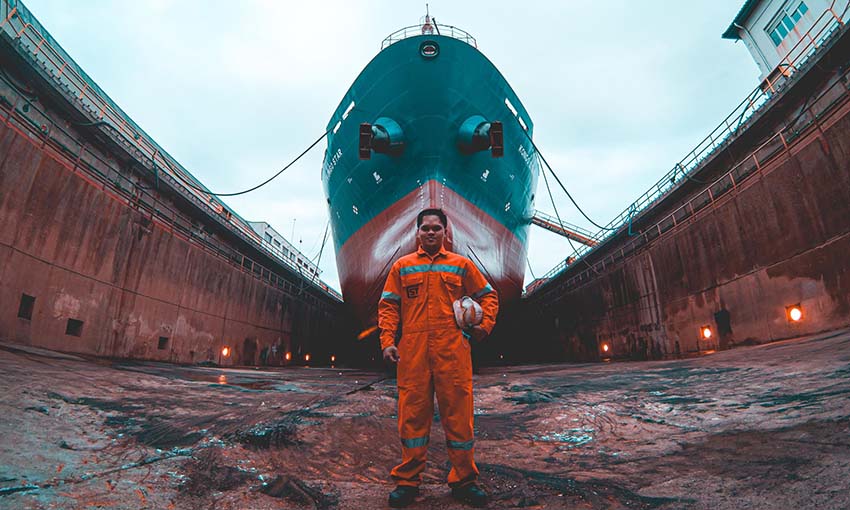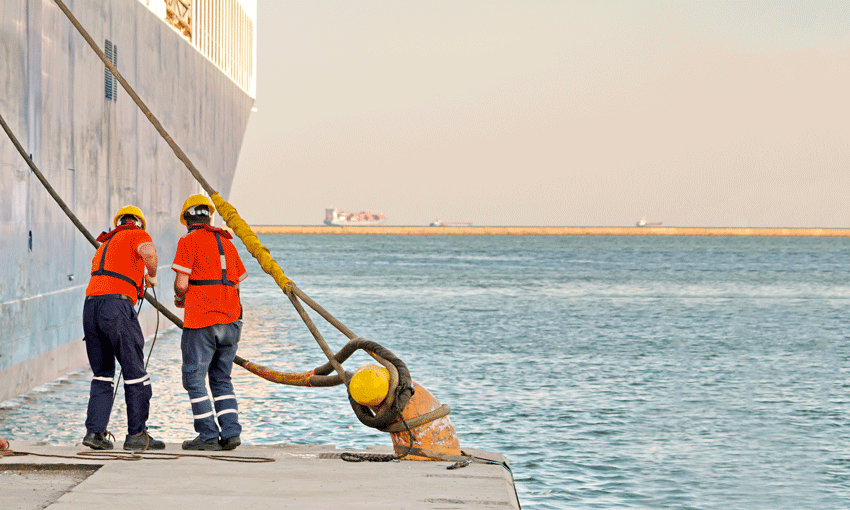THE MARITIME Just Transition Task Force is launching a project designed to prepare seafarers for work in a decarbonised maritime industry.
The International Maritime Organization and Lloyd’s Register Foundation funded the development of the training framework.
The taskforce is announcing the project at COP 28 in Dubai, a year after COP 27, where it unveiled a plan to help governments and industry train seafarers to handle alternative fuels.
Research commissioned by the Maritime Just Transition Task Force found an estimated 800,000 seafarers may need additional training by the mid-2030s to operate vessels running on zero or near zero emissions fuels.
“Seafarers are at the heart of the just transition needed in the shipping industry,” International Transport Workers’ Federation general secretary Stephen Cotton said.
“Training the current and future workforce is crucial to ensure that workers’ expertise is front and centre as the industry transitions and decarbonises.
“We have heard the message loud and clear from seafarers around the world, they are ready to lead, they are ready to shape the training frameworks for the zero carbon fuels of the future.”
IMO secretary-general Kitack Lim said the IMO’s adoption of the 2030 Strategy on the Reduction of Greenhouse Gas Emissions from Shipping demonstrated member states’ commitment to the transition.
“We need to ensure no one is left behind and we need to commit to training the workforce so that they are ready,” Mr Lim said.
“This collaborative project will help ensure a successful and equitable transition, harnessing the collective strength of the global maritime community.”
The taskforce noted the IMO is reviewing and revising the International Convention on Standards of Training, Certification and Watchkeeping for Seafarers with input from industry and seafarers’ unions.
“Twenty-thirty is just around the corner, and we cannot be complacent about the needs of our seafarers and the appropriate training being in place to support them during our transitioning sector,” International Chamber of Shipping secretary general Guy Platten said.
“Without our people we have no industry so seafarers should always be at the forefront of every decision.
“As we move forward into Phase II of the Maritime Just Transition program, we must now all continue to work together and further build on the strong relationships formed in Phase I to ensure that our seafarers have the training they need.”
Once developed, the Baseline Training Framework for Seafarers in Decarbonization will be tested in Asia through a program led by the World Maritime University, with support from the IMO Maritime Technology Cooperation Centre (MTCC) Asia and other partners.
Training materials will be developed for all seafarers and for officers. The aim is to then expand testing of the package globally with all the established MTCCs and other appropriate organisations.
training (MET) institutes to develop their programmes, as appropriate. A ‘train the trainer’ programme will also be developed to assist METs further.
The Maritime Just Transition Task Force was formed at COP 26 in 2021 by the ICS, ITF, the United Nations Global Compact, IMO and the International Labour Organization.
The taskforce aims to have developed the training materials by mid-2025.





